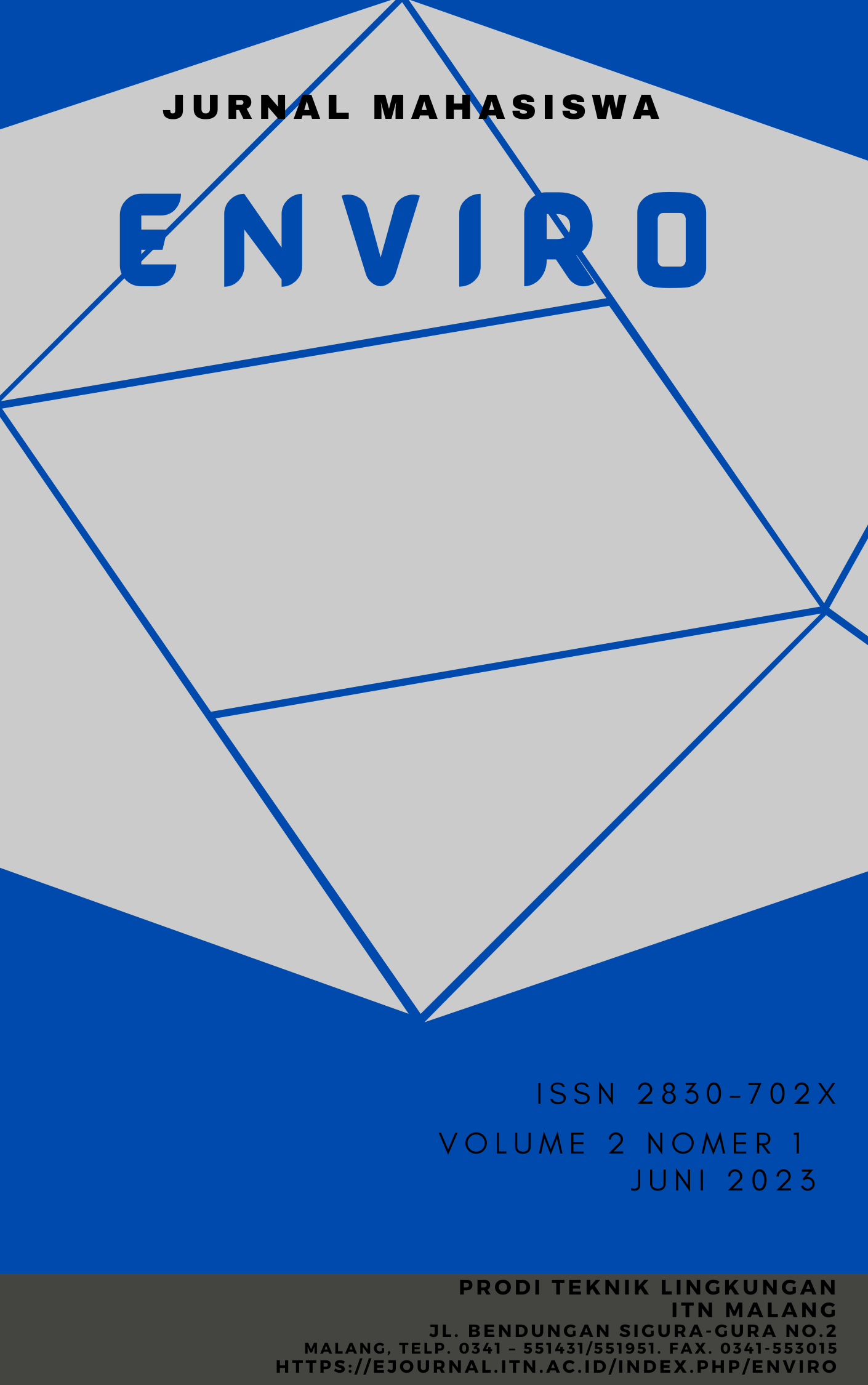PEMANFAATAN SLUDGE INDUSTRI SUSU DAN BAKTERI (Bacillus sp.) PADA TANAH TERCEMAR PESTISIDA DENGAN BIOREMEDIASI
Abstract
ABSTRACT, Modern agricultural activities in Indonesia use pesticides significantly to be able to increase agricultural production, even though it will have an impact on living things and the environment. The methods used in the bioremediation process are biostimulation and bioaugmentation. In the process, mixed nutrients derived from milk sludge and rice straw will be added and the addition of Bacillus sp. Bacteria. into the soil as a pesticide degredator. The purpose of this study was to analyze the characteristics of the milk industry sludge and pesticide content, to analyze the efficiency of the utilization of the milk industry sludge and the bacteria Bacillus sp. in the bioremediation process and knowing the benefits of milk sludge as an alternative to controlling soil pollution.
The results obtained in the biostimulation method with the addition of mixed nutrients derived from milk sludge and rice straw with variations in the addition of 30% and 70% were able to degredate profane pesticide residues in the soil on day 14, and day 28 of -0.3834 ppm and - 0.9028 ppm in both biostimulation variations. As for the bioaugmentation method with the addition of mixed nutrients and the bacteria Bacillus sp. as much as 1.5 mL and 2 mL. The addition of 2 mL of bacteria was able to degredate the pesticide profenos significantly compared to the addition of 1.5 mL of bacteria where, the degraded pesticide residual values were -2.2034 on the 14th day and -6.8822 on the 28th day.
Keywords: Bioremediation, Biostimulation, Bioaugmentation, Dairy industry sludge, Bacillus sp.

